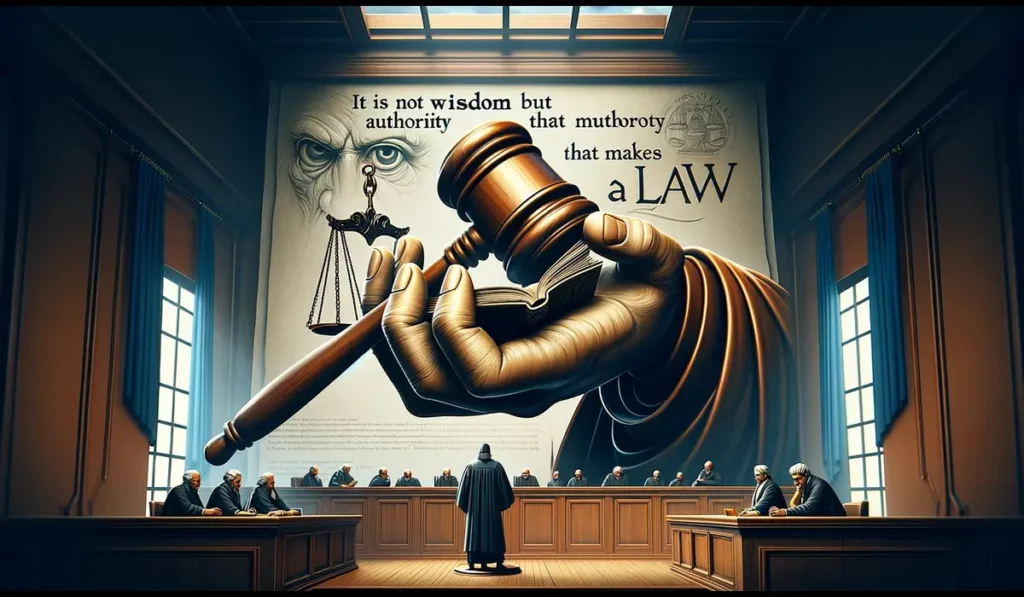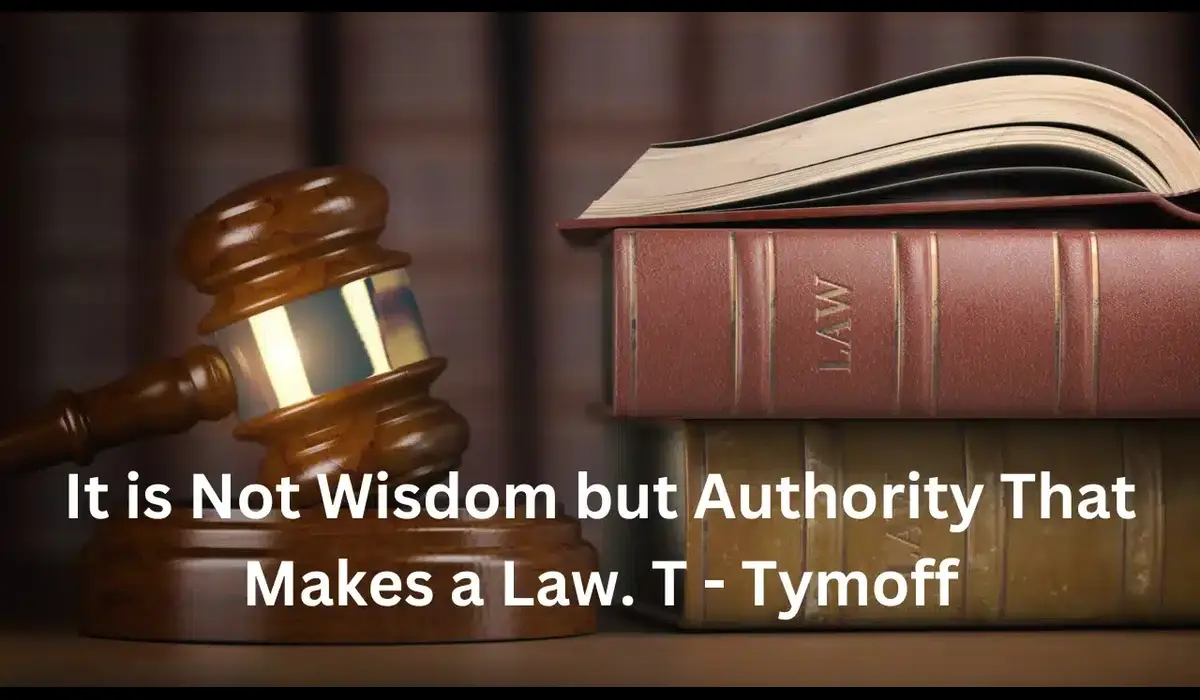Introduction: Law. T – Tymoff
“It is not wisdom but authority that makes a Law. T – Tymoff
In the realm of jurisprudence, the interplay between wisdom and authority in the formation and enforcement of laws has long been a subject of debate. The quote by Law. T – Tymoff encapsulates a significant perspective, raising questions about the foundation and legitimacy of laws. This article delves deep into this notion, examining the roles of wisdom and authority in shaping legal frameworks and their implications for society.
Understanding Wisdom and Authority in Law:
Wisdom, in the context of law, refers to the collective knowledge, insight, and ethical considerations that underpin the creation of legal principles. It encompasses the understanding of societal norms, moral values, historical precedents, and the consequences of legal decisions. Wisdom in law often involves a rational and deliberative process, wherein lawmakers, judges, and legal scholars analyze complex issues to ensure fairness, justice, and the common good.
On the other hand, authority denotes the power or right to enforce laws and compel obedience within a given jurisdiction. Authority in law is vested in various entities such as legislative bodies, executive agencies, courts, and law enforcement institutions. It provides the legal framework with legitimacy and ensures compliance through sanctions and enforcement mechanisms.

The Interplay between Wisdom and Authority:
While wisdom ideally informs the creation of laws, it is authority that ultimately gives them legal force and effect. Laws derive their legitimacy not solely from their inherent wisdom or moral correctness but from the authority vested in the governing bodies or institutions that enact them. In this sense, authority serves as the bedrock upon which legal systems operate, providing stability, predictability, and order in society.
However, the relationship between wisdom and authority in law is complex and sometimes contentious. At times, laws enacted based on authority may lack wisdom or fail to reflect societal values, leading to injustice or conflict. Conversely, laws rooted in wisdom may face challenges in enforcement if they lack the necessary authority or institutional support.
Implications for Society:
The dominance of authority over wisdom in law raises important questions about the nature of governance, democracy, and the rule of law. When authority supersedes wisdom, there is a risk of arbitrary rule, oppression, and the erosion of individual rights and liberties. Conversely, an overemphasis on wisdom without due regard for authority may lead to legal ambiguity, ineffectiveness, and challenges to enforcement.
Moreover, the balance between wisdom and authority in law can vary depending on cultural, political, and historical contexts. In authoritarian regimes, authority often prevails over wisdom, resulting in laws that serve the interests of the ruling elite rather than the broader society. In contrast, democratic societies strive to strike a balance between wisdom and authority, ensuring that laws are grounded in principles of justice, equality, and the public interest.
Frequently Asked Questions (FAQs):
Q: How does the concept of authority differ from that of power in law?
A: While power refers to the ability to influence or control others, authority specifically relates to the legitimate right to make and enforce laws within a legal framework. Authority is derived from legal norms and institutions, whereas power can be exercised through various means, including coercion, persuasion, or influence.
Q: Can laws be considered legitimate if they lack wisdom?
A: Legitimacy in law is a complex concept that encompasses both procedural fairness and substantive justice. While laws may derive their legitimacy from authority, their wisdom or moral correctness is also crucial for their acceptance and compliance by society. Laws perceived as unjust or arbitrary may face challenges to their legitimacy, even if they are enforced through authority.
Q: How can societies ensure that laws are both wise and authoritative?
A: Ensuring that laws are both wise and authoritative requires a robust legal framework, democratic governance, and active citizen participation. Lawmakers and policymakers must engage in evidence-based decision-making, consult with experts and stakeholders, and uphold principles of transparency, accountability, and the rule of law. Additionally, mechanisms such as judicial review, legislative oversight, and public scrutiny help prevent the abuse of authority and ensure that laws align with societal values and interests.
Conclusion:
In conclusion, the relationship between wisdom and authority in law is intricate and multifaceted, shaping the legal landscape and its impact on society. While authority provides laws with legitimacy and enforceability, wisdom ensures that they are grounded in principles of justice, fairness, and the common good. Achieving a balance between wisdom and authority is essential for the effectiveness and legitimacy of legal systems, fostering trust, cohesion, and progress in society.
Through critical examination and thoughtful deliberation, societies can strive to uphold the ideals expressed by Law. T – Tymoff quote, ensuring that it is not just authority but also wisdom that guides the making and application of laws.




